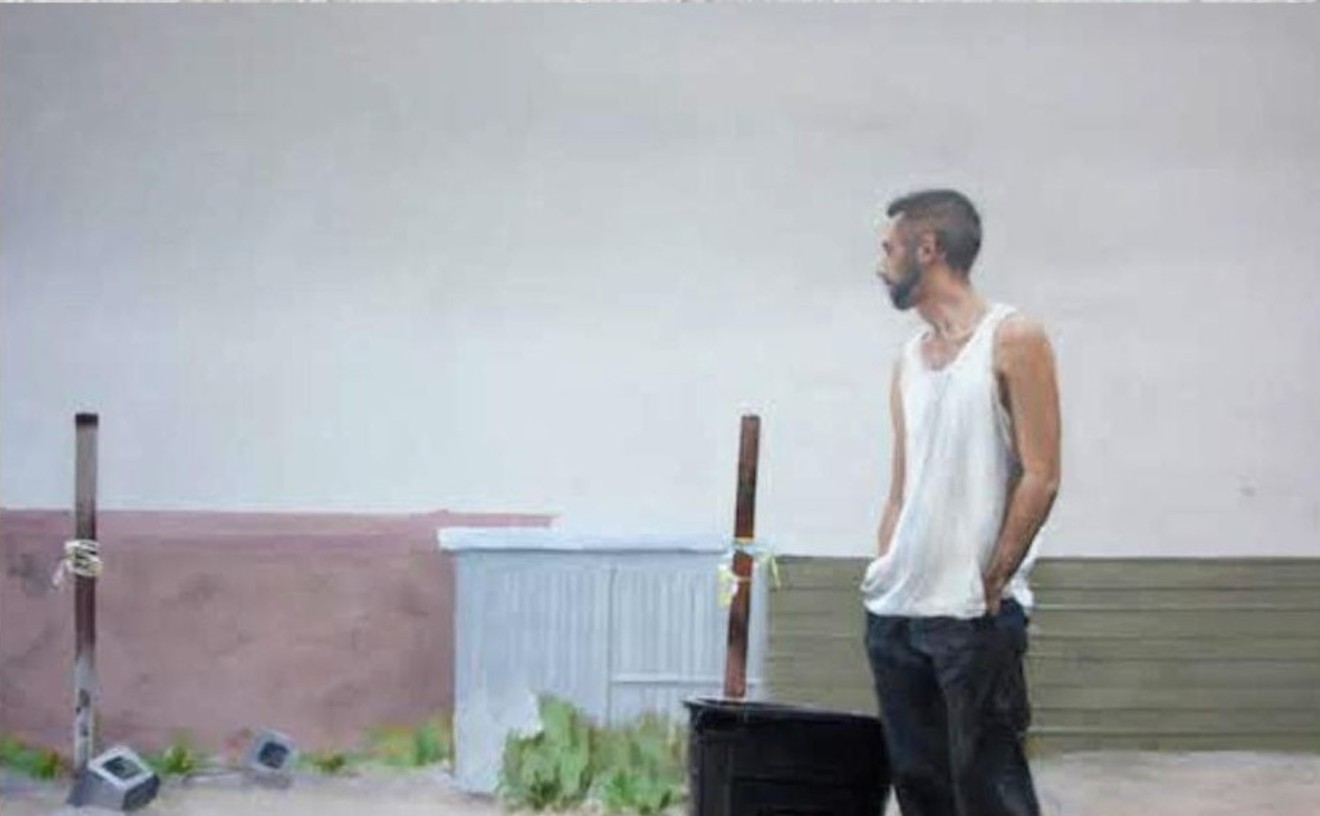Director Stephen Wrentmore brings one of Oscar Wilde's most beloved comedic plays, The Importance of Being Earnest, to Phoenix's Herberger Theater Center starting Thursday, October 10, as the season's opener. Judging from Tucson audiences' reception, it's sure to be a hysterical show.
Although the Arizona Theatre Company director is a longtime Wilde fan and has directed more than 50 different productions around the world in his career, this is the Cambridge Univeristy grad's first time directing a Wilde play. His production, set in a not-quite realistic Victorian England, features Anneliese van der Pol of That's So Raven fame as Gwendolen Fairfax and Tucson native Mike Lawler as Doctor Chasuble. Wrentmore spoke to Jackalope Ranch about what his version does differently than others, preparing his actors for Wilde's British subtleties, and the importance of theater for everyone.
See also: Ruthless! The Musical Is a Crafty Campathon at Phoenix Theatre
How did you get into the theater and directing world? I sort of did what I think lots of kids do -- when I saw theatre, I saw actors so I thought that was what I'm going to be, until I realized that I was a terrible actor. At university, I kind of started directing and then I went on to do a masters in directing at a grad school in London and before I even graduated I got my first directing job and I've been doing it ever since.
What other projects have you directed? I usually try do new plays or classics... I usually don't get to do comedies because once you start doing things like MacBeth or Hamlet, those are the plays that you tend to get offered. One of the joys of having a job within a theatre company, you get directing opportunities in a lot of different ways. It's been a real pleasure to get to come and direct a comedy. It's the first time I've done it in a number of years.
Who's your favorite playwright? Howard Barker.
What did you want to focus on in bringing this classic Oscar Wilde play to the stage? I wanted to get the sense of playfulness, I wanted to get the celebration of language and I wanted to make sure that what happens when you experience Oscar Wilde, particularly when I'm working with American actors, is getting the technicalities of the accent.
How has it been received in Tucson so far? The audiences are loving it. There's a huge sense of affection from them... Basically ongoing laughter and standing ovations. We've got huge special effects in the second half that's getting a round of applause every night, which is really reassuring.
How does your adaptation differ from others, such as the film with Colin Firth? It's very much in the spirit of Oscar Wilde -- it's artful and artistic... It's got a real sense of playfulness about it.... I haven't changed any words of the Oscar Wilde. The words are the words are the words and you go to see Oscar Wilde because he's a master of language. It can't be compared with a film because it can move location. The big difference I think I have is that I'm not trying to recreate the Victorian drawing world.
Did you set the play in different era other than Victorian England? Sort of. I have an agenda in my work, particularly when you're looking at a classic play, you have to use the period to inform the play but you also have to make it feel and sit comfortably with a contemporary audience. I'm not very interested in setting theatre in naturalistic worlds. Theater isn't naturalistic so trying to recreate naturalism is an act of extreme folly.
How do you think a satire of Victorian ideals and the concept of triviality applies to today? I think it does. Some of the political jokes fall by the wayside. I think one of the things that is really successful in this play is one of the things Lady Bracknell constantly jokes about age-- I just love the idea that it's always something we're concerned about.
The comedy and plot twists make for a great experience for first-time viewers of this play, but what do you think your production adds for people who are more well-versed in this play specifically or Oscar Wilde in general? My encounters with Wilde -- I've seen all of his plays now and even when a production is not one of my favorites, you can't escape the sheer pleasure of being in the company of a man who understands language so perfectly as him. The pleasure of just letting the words wash over you will be present in this. One of the things that happens when you're an aficionado and you're in the company of great actors who really get what they're saying, it's so rewarding--it's so refreshing.
What was the most difficult part of bringing this play to life? There were two things. The first is the English have an innate understanding of class and have used and exploited class both as a weapon and a defense for centuries and I don't have to navigate that with English actors. The second is language. If it feels like you have to work hard to say these things then it spoils the magic. The analogy I drew for the actors is when you go to the ballet, you don't want to see the ballerina sweat. You don't want to know how hard it is to stand on pointe. You want her to look elegant and graceful and I think the same it true for Wilde's language.
What did you use for your music in the play? I've mixed very contemporary music and themes you might know with classics you probably don't know. I've completely fallen in love with this one little piano piece called "Musette" by Bach in D Minor. There's an element of modernity and also an element of classical music, and I think that's real a statement on how this production works.
There's an ASL performance as well as a "Pay What You Can" performance and two student matinees planned for this production. Why is it important to you to include options like these to theatergoers? Theatre is a common treasury. Theatre belongs to everybody. It's our responsibility to make sure that the doors are open for everybody and there can be no excuse to not attend, regardless of disability to pay or hear or see. In the case of young people, it's about making sure they feel like theatre belongs to them. The alternative is that it becomes an exclusive art form and that would be the death of theatre.
What's the number one reason people should go see Importance of Being Earnest? The thing that I love about Oscar Wilde is he knows he's a contradiction. He loves being part of the elite and part of society, but he also revels in being an outsider. What he does as a writer [in Importance of Being Earnest] is he asks us how much do we compromise for the love that we want.
What do you plan on directing in the future? I don't have anything certain planned. I have a number of conversations going on. I don't like thinking about the next thing while I'm right in the middle of one. Next week I go back in to prepare for Phoenix audiences and that's where my concentration will be.
How does the process of bringing a play from printed page to actual stage production work? About nine months ago, I began thinking about how I was going to do it. I started emmersing myself in Wilde and figuring out what he was trying to achieve by writing the play. My first appointment is with my designer to work with me to create a visual sense of the world, what it's going to look like and feel like.
The next decisions are in terms of lighting and sound. I took a long time finding what I call the sound of the show. Sometimes I work with a composer, but in this case I found the music myself. The sound designer then worked with a pianist to take the sounds in my head and put them to the show. The next thing I do is go looking for my actors, and in this situation once you make one decision everything else starts falling into place. I tend to cast voices as well as faces so it's visually and aurally appealing. That's' all before we get to rehearsal -- all of the furniture, set, and costumes were hand built in Tucson. Then once we're on stage we can deconstruct and reconstruct the play. The final ingredient is the audience, which in a comedy is like a second character in the play. Once I matched the play and the audience, my job as a director is done.
Wrentmore's production of The Importance of Being Earnest at Herberger opens at 7:30 p.m. on October 10 and runs through Sunday, October 27. Tickets, which range from $36 to $60, are available via the box office at 602-256-6899 or online, along with more information, at www.arizonatheatre.org.











